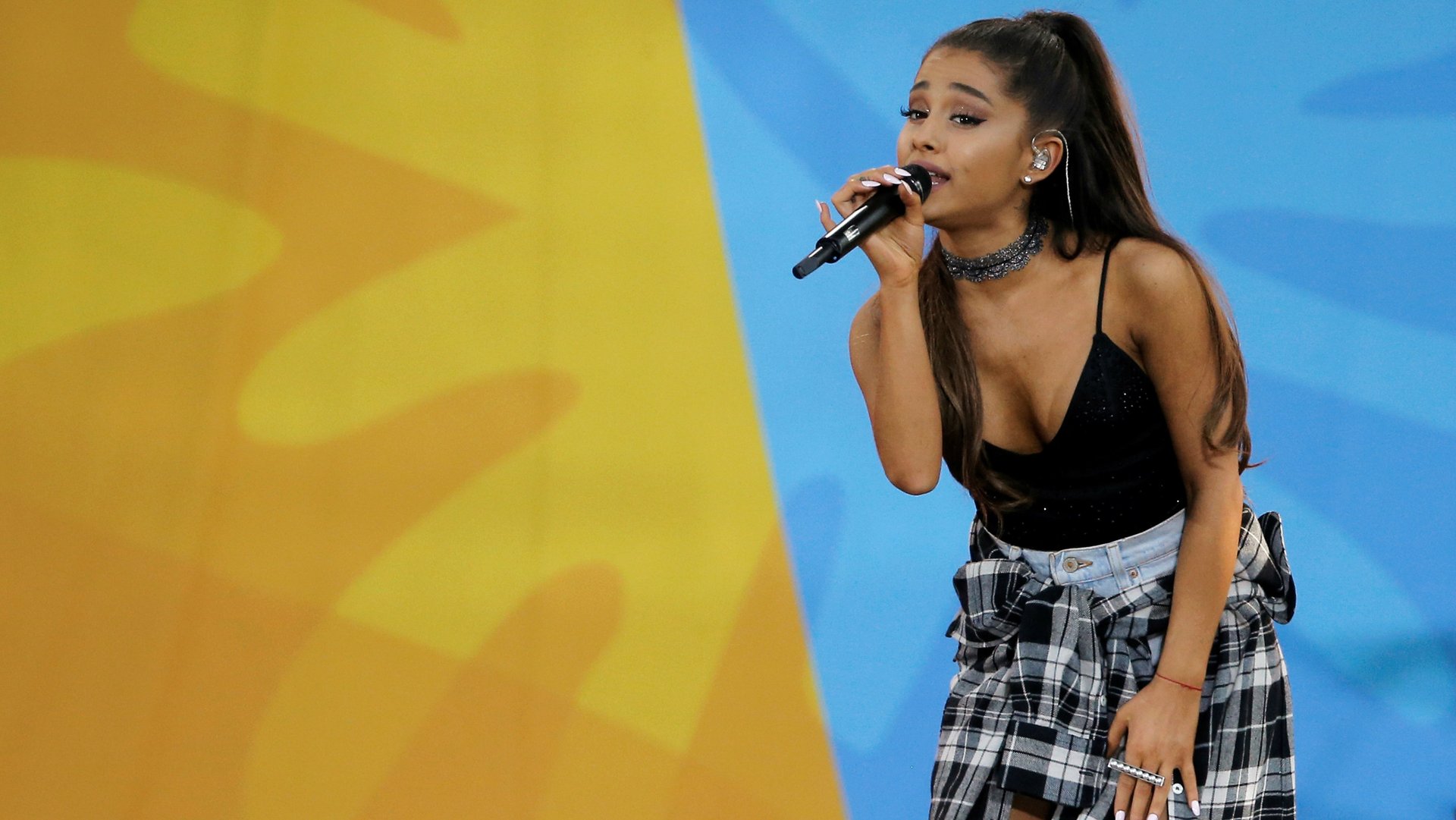Now That’s What I Call Music! just turned 100
Phil Collins’ cover of the The Supremes’ “You Can’t Hurry Love” is the first song on the very first Now That’s What I Call Music!—or “Now,” as it’s popularly known—released in the UK in 1983. Yesterday (July 20), the 100th UK volume of the series was released; its first song is Calvin Harris and Dua Lipa’s electronic dance hit “One Kiss.” Listen to both tracks and you’ll see that we’ve come a very long way, baby.


Phil Collins’ cover of the The Supremes’ “You Can’t Hurry Love” is the first song on the very first Now That’s What I Call Music!—or “Now,” as it’s popularly known—released in the UK in 1983. Yesterday (July 20), the 100th UK volume of the series was released; its first song is Calvin Harris and Dua Lipa’s electronic dance hit “One Kiss.” Listen to both tracks and you’ll see that we’ve come a very long way, baby.
Over its 35 years of existence, Now has developed into a music-industry juggernaut. Ninety-eight of the previous 99 UK releases spent time as the country’s number-one album. The compilation series has also spread to more than two dozen countries—78 versions have been released in South Africa and 66 in the United States. According to the BBC, the series has sold over 120 million records, including 3.2 million in 2017. It also does charitable work, helping countless people around the world place that song they heard one time at a wedding.
The mixtape began as a partnership between record labels EMI and Virgin Records. At the time, the “Top of the Pops” series, a compilation of covers of popular hits, was in its heyday. Now’s creators figured they would give people the real thing. By bringing together their respective catalogues, the labels were able to make an album with basically all the songs pop-lovers desired. Simon Draper, one of the co-founders of Virgin Records, says the name comes from an old poster that fellow co-founder Richard Branson purchased for him (Branson bought the poster from his future wife.)
The music on the albums tends to be lowest common denominator. As my colleague Corinne Purtill puts it, “Nothing about the ‘Now That’s What I Call Music!’ series is cool.” It’s not a good way to find undiscovered artists or musicians going against the grain, but it is an excellent way to stay abreast of songs that were broadly popular in any given year. In the US, Quartz found that Katy Perry and Britney Spears appeared most often on Now compilations.
For now, it doesn’t appear that Now is going anywhere. Although the mixtapes can be streamed, the albums continue to sell, particularly among older listeners content to let a pre-curated selection of sanitized pop wash over them. Now they have 100 versions do it with; here’s to 100 more.